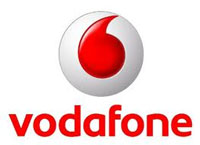
Subscribe & Follow
Advertise your job vacancies
Ditch emerging-market fixed-line plans: Vodafone
A report by mobile operator Vodacom's parent company Vodafone and the World Wide Web Foundation has cautioned against over-investing in the deployment of fixed-line fibre access networks in emerging markets and particularly rural areas, questioning the sustainability of such an approach given its expense.

The 2011 SIM Report provided substantial evidence to suggest that extending data services to as many people as possible would deliver considerable economic and social benefit.
"Given the ubiquity of mobile and the growing number of low-cost smart devices, it is likely that data services will be primarily accessed via mobile, particularly in emerging markets where there is no significant legacy fixed-line infrastructure," the authors of the report said.
Despite this, however, regulators in many emerging markets were over-investing or planning to invest, at great expense, in the deployment of fixed-line fibre access networks, Vodafone said.
The report studied the Indian states of Maharashtra, Karnataka and Rajasthan to compare the feasibility of extending fibre access networks against mobile networks.
It concluded that the deployment of a fibre access network would only be commercially viable in 3% of the districts.
On the other hand, it was commercially viable to provide wireless broadband coverage to 98% of the districts.
Diane Coyle, chair of the Vodafone SIM Panel and editor of the report, said: "The aim of the SIM report is to provide policy makers with evidence that will help them shape their policies to stimulate economic growth.
"We believe that our findings show that the current emphasis on delivering fibreoptic cable everywhere overlooks other effective means of extending the use of broadband in an affordable way."
In addition to network deployment, the SIM report considered the important role that relevant and appealing content plays in building demand for data usage to a critical point where network effects and economies of scale accelerate.
The use of global websites, especially social networking sites such as Facebook, was becoming widespread.
"This is a good sign as these sites can provide the platform for the development of local content and can help to drive the prices down. Looking ahead, the report recommends that governments provide mobile-enabled services free of charge in order to increase broadband take up," the telecoms group said.
Steve Bratt, CEO of the World Wide Web Foundation, said: "Affordability for low-income users will require innovation that does not place most of the burden of access costs on the user.
"This report shows that social networking has huge potential to act as a platform for e-government applications accessible via mobile handset devices.
"We hope regulators allow innovations in this area to flourish and not inhibit them by preconceived notions of the right model or pricing."
The report also called for sufficient spectrum to be made available for service providers in emerging markets.
It recommended that regulators should focus on consumer welfare when making spectrum available for service providers as the availability of spectrum would drive technology innovations and better coverage for the growing demand for mobile broadband services.
"Tapping spectrum as a source of short-term government revenue costs the economy billions more in lost economic value," the authors said.
It pointed to the recent sale of spectrum in India, where the economic value of the recent 3G auction was about $0.5 billion per year, compared with the lost economic growth due to delay at over $22 billion per year.
"The regulatory challenge lies in enhancing the supply of spectrum, given that mobile broadband services will place enormous pressure on the existing spectrum capacity.
"Spectrum policy in many emerging markets is characterised by short-term government revenue-raising objectives and these lead to policies such as 'warehousing' spectrum and spectrum caps," the report said.
It added that, as the demand for spectrum took off, these restrictions would become even more tempting, but they would ultimately limit growth and raise costs and prices for users.
In terms of mobile data traffic, the report cited 'one respected forecast', which estimated that: "Global mobile data traffic will increase 26-fold between 2010 and 2015. Mobile data traffic will grow at a compound annual growth rate of 92% from 2010 to 2015."
Within this total, the Middle East and Africa were expected to see the strongest growth of any regions, growing at a compound annual rate of 129%.
"The emerging market regions (Central and eastern Europe, Latin America, and Middle East and Africa) will have the highest growth and will represent an increasing share of total mobile data traffic, from 12% at the end of 2010 to 20% by 2015".
If somewhat predictably, the report said that mobile offered the potential for mass market access to the internet in emerging markets, building on the acknowledged success of mobile telephony.
"However, realising this potential will depend both on growing demand for internet access and on incentives for the creation of broadband networks that can extend access.
"Neither will come about without innovation by businesses and an appropriate policy framework.
"Policymakers in emerging markets need to base their broadband information and communications technology strategies on mobile internet access, and all that this involves, as their current focus on fibre and on backbone infrastructure could have the perverse consequence of inhibiting the very outcome they want to achieve," Vodafone said.
Source: I-Net Bridge

For more than two decades, I-Net Bridge has been one of South Africa’s preferred electronic providers of innovative solutions, data of the highest calibre, reliable platforms and excellent supporting systems. Our products include workstations, web applications and data feeds packaged with in-depth news and powerful analytical tools empowering clients to make meaningful decisions.
We pride ourselves on our wide variety of in-house skills, encompassing multiple platforms and applications. These skills enable us to not only function as a first class facility, but also design, implement and support all our client needs at a level that confirms I-Net Bridge a leader in its field.
Go to: http://www.inet.co.za

